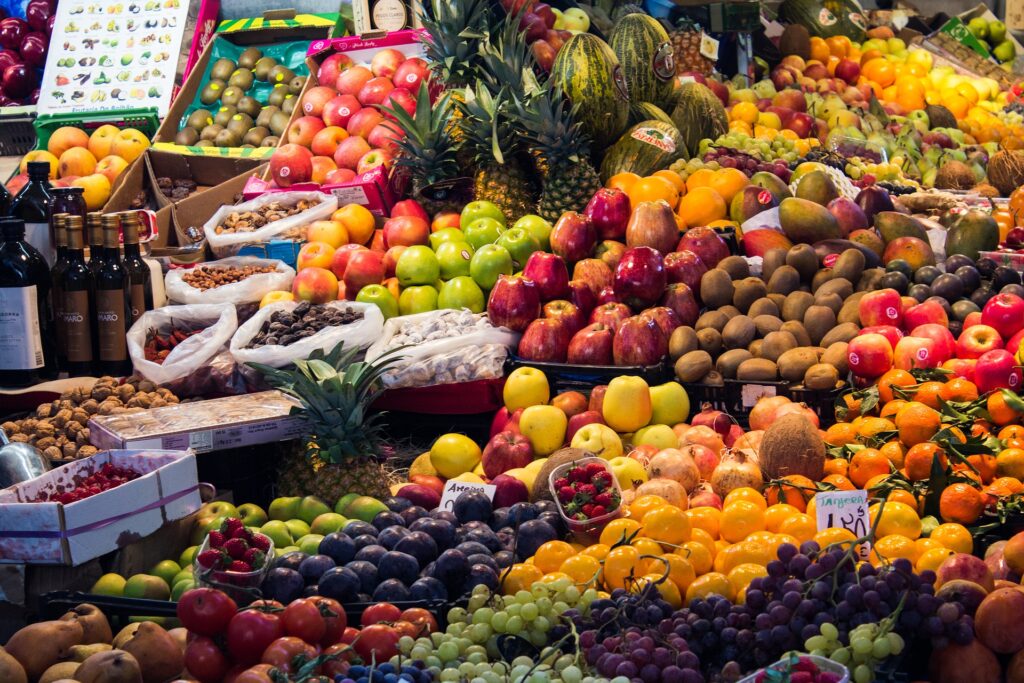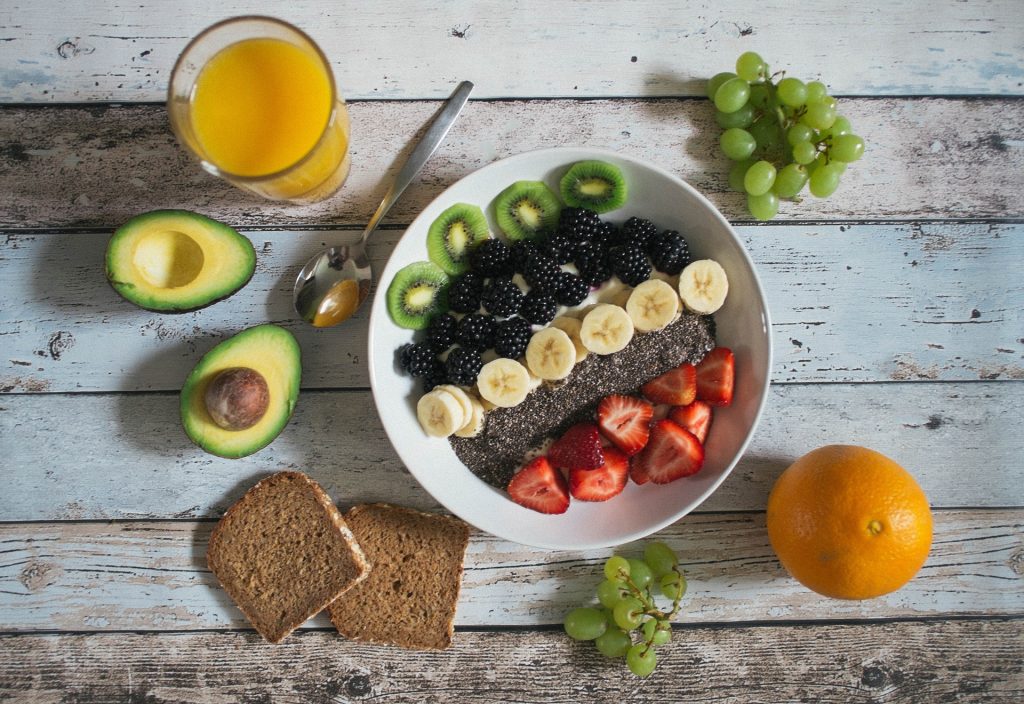Let’s start with Why – a plant-based diet
Are you worried about your health? Do you want to lose weight? Are you concerned about the planet and climate change? If any or all of these apply to you, you should give serious thought to the plant-based diet.
Eating a primarily meat-based diet contributes a great deal to climate change and other environmental factors. Producing any form of meat for human consumption involves many steps and takes a much longer time for the process. This takes up a great deal of energy (including fuel), time, and resources. Many people also have ethical and moral concerns about eating meat. And do keep in mind that meats, particularly processed meats, may be full of preservatives, additives, flavor enhancers, and more all of which contribute to inflammation and various health problems.
The US Department of Health recommends that you should eat more whole foods, grains, vegetables, and fruits. So, switching to a plant-based diet may be a great option. The plant-based diet is available in many variations, and you can pick the one that you are most comfortable with.
You may well feel that a plant-based diet will deprive you of your favorite foods, but that is not the case. You can choose a plant-based diet that includes many of your favorite foods so that you find it easier to stick to.
What is a Plant-based Diet?
The term plant-based is an umbrella term for various diets that are completely or partially plant-based. In any of its variations, this diet emphasizes eating more plant-based foods. All kinds of plants are included such as leafy greens, vegetables, fruits, nuts, and seeds that grow and are only processed for storage and consumption. So you should eat more of the foods that grow naturally or are derived from plants.
Even if your normal diet consists of meat and veg, the emphasis should be less meat and more veg. At the same time, whole foods are also important. These include fiber-rich cereals and whole fruits and vegetables rather than stripped-down and processed cereals and juices.
Can you eat meat on a plant-based diet? If you chose the kind of diet that includes meat, then you can include meat. Here again, it is best to have fresh or frozen meats rather than processed ones. Having something organic, pesticide-free, and antibiotic and hormone free is more nutritious than having cheaper and regular processed meats.
Different Kinds of Plant-based Diets
Vegetarian
A vegetarian diet excludes all forms of meat. In this diet, you can eat all vegetables and fruits and have milk and dairy products, including butter and cheese, and yogurt. Considering that you can get most of your daily protein requirement from milk and dairy, you will not be deprived of any important nutrients.
This diet is followed by millions globally because it does not require the killing of animals and birds. Even milk and dairy and items like honey are usually ethically sourced, so permitted on this diet. Some vegetarians may eat eggs that are sterilized (they will not grow into chickens), while others may eat all kinds of eggs in their diet.
Vegetarians, who miss their meat, can opt for various plant-based types of meat that are now largely available worldwide. Most of these are also good protein sources.
Vegan
A vegan diet has more restrictions than a vegetarian one. It excludes all milk and dairy products or any foods that originate from animals, birds, or bees, including honey. Fats on this diet should only be sourced from vegetables, nuts, and seeds and not lard, tallow, fish oil, and other fats that originate from any kind of animal.
Strict vegans may also not have supplements that have an animal origin (such as Vitamin D3) or food colors like cochineal (derived from insects) or gelatin (derived from animals).
Vegan foods are now available in a wide variety in supermarkets and grocery shops and you can choose from a range of foods that can take the place of meats in your diet, while not compromising your vegan beliefs. You can also get plant-milks and plant-based cheeses, plant-based meats, and other substitutes for the foods you may have been used to.
Depending on the diet that vegans follow, they may need to take some supplements (like Vitamin B12) that cover their nutritional gaps. If you are planning to follow a vegan diet, talk to a nutritionist or dietitian regarding the supplements that you may need.
Flexitarian
A flexitarian is a person who follows vegetarianism but indulges in meat or fish occasionally. You may restrict your meat-eating to one meal or once a week or just sometimes, when vegetarian food is not available. This diet is also plant-based.
Also known as semi-vegetarian, this diet includes small amounts of dairy and eggs, and other animal foods. In fact, the flexitarian diet is popular because it offers most of the benefits of a plant-based diet, is not nutritionally deficient, and is a great way to transition into a stricter plant-based diet, if you so wish.
Pescatarian
A pescatarian plant-based diet will be right up your alley if you enjoy seafood and fish and want to avoid eating red meats. In fact, a pescatarian diet is healthy because fish is a great source of protein, is easy to digest, and is high in many nutrients as well.
Fish is also loaded with Omega 3 fatty acids, vitamins, calcium, and minerals. As a pescatarian, you may or may not eat eggs and dairy, which depends entirely on you. But you do eat a lot of plant foods in any case.
Now that you know about the different kinds of a plant-based diets, you can decide on which one you want to follow.
A Guide to a Plant-based Diet
When you want to transition to a plant-based diet, you may find it difficult in the beginning particularly if your breakfast consists of eggs and bread and your normal meals are meat-based. However, you can start by taking small steps, such as including more fruits and vegetables at the start of the day. Smoothies, oatmeal with fruits, and other cereal-based foods with either fruit or veg or both can be a great start. Include some milk or dairy for added nutrition. Vegans can opt for plant milk and spread instead.
For lunch, instead of high-carb foods, you should eat salads and wraps with a lot of vegetables, yogurt, and fruit. If your main meal is dinner, you can find a range of options in the plant-based space including loaded whole-wheat pizzas, Chinese rice or noodles with lots of vegs, pasta, lentils and beans, and more.
As far as snacks go, while pastries and donuts may be vegetarian or even vegan, they are not really healthy. It is better to opt for nuts and seeds or fresh fruit when you feel like a snack.
Worried about protein? Plant-based sources of protein include seitan, tofu, tempeh, beans, lentils, soy, and whole grains.
A word of warning: you can consider yourself vegetarian or vegan or any other form of a plant-based diet, but still eat unhealthy foods like fries, chips, burgers, munchies, and other snacks, including donuts and sugared cereals as these are not ‘forbidden’ on this diet. So you must make the right food choices if you want to be healthy. As far as processed foods, packaged foods, and frozen foods go, ensure that there are no unpronounceable or difficult-to-understand ingredients on the package, no additives and fillers, and preservatives, that are not good for anyone’s health.
Why Should You Opt for a Plant-based Diet?
Research studies have shown that plant-based diets offer protection against many diseases such as
- Heart disease
- Stroke
- Cancer
- High blood pressure
- Diabetes
- High cholesterol levels
- Cognitive problems
At the same time having a plant-based diet means that you get more phytochemicals, flavonoids, and other antioxidants that help with oxidative stress in the body as well as inflammation. Thanks to fiber-rich foods, you develop regularity in bowel movements and enjoy better gut health.
A plant-based diet is also good for weight loss, provided you eat the right foods. And obesity is a major contributing cause of many diseases.
If you want better health or want to save the planet or even reduce your food spending, a plant-based diet is for you.
References:
health.gov/our-work/nutrition-physical-activity/dietary-guidelines
ncbi.nlm.nih.gov/pmc/articles/PMC5466934/
health.harvard.edu/staying-healthy/the-right-plant-based-diet-for-you
extension.psu.edu/plant-based-diet
www.sciencedirect.com/science/article/abs/pii/S2212267216311923 OR
pubmed.ncbi.nlm.nih.gov/27886704/
pubmed.ncbi.nlm.nih.gov/30487971/
pubmed.ncbi.nlm.nih.gov/31515473/




